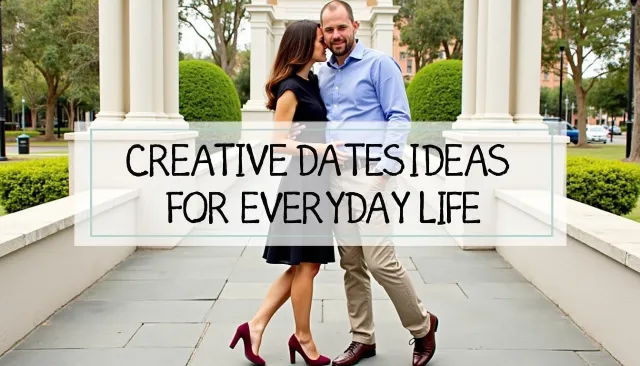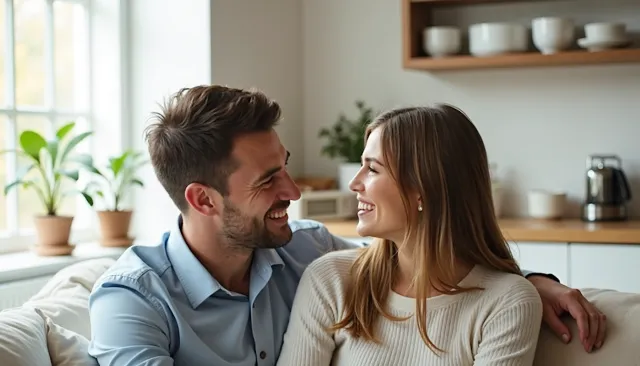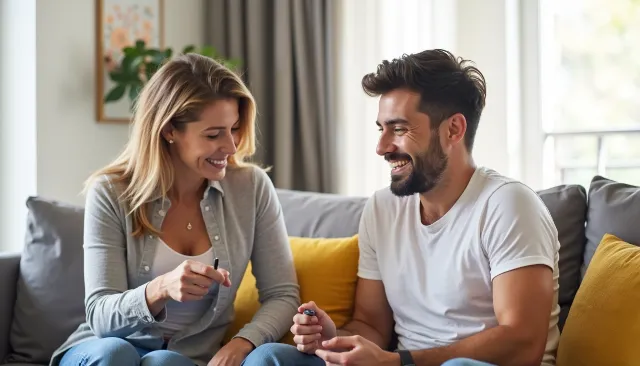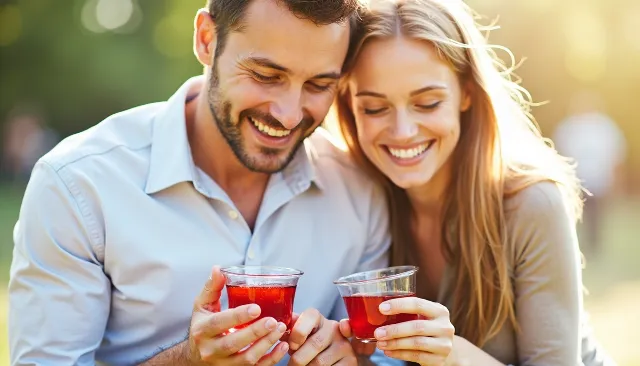1. Introduction: The Power of Gratitude in Relationships
Gratitude means saying “thank you” and feeling thankful for the good things in our lives. In relationships, showing gratitude can make bonds stronger and happier. When we appreciate others, it helps them feel loved and valued.
Being thankful isn’t just about saying “thank you”; it’s about showing kindness and recognizing the efforts of those around us. This simple act can bring people closer together and create a positive atmosphere.

Research shows that couples who express gratitude regularly have better relationships. They communicate more openly, trust each other more, and feel happier together. So, practicing gratitude daily can lead to a more loving and supportive relationship.
2. Understanding Gratitude: What It Really Means
Gratitude is about recognizing and appreciating the good things in our lives. It’s more than just saying “thank you”; it’s about feeling thankful and showing it through our actions.
When we practice gratitude, we focus on the positive aspects of our relationships. This helps us notice the good things our partners do, making us feel happier and more connected.
Being grateful also means acknowledging the efforts of others. Whether it’s a kind word, a helpful gesture, or just being there for us, recognizing these actions strengthens our bond and fosters mutual respect.
3. How Gratitude Strengthens Emotional Bonds
Expressing gratitude helps build trust and emotional closeness in relationships. When we show appreciation, it makes our partners feel valued and understood, deepening our connection.
Gratitude also encourages positive interactions. It shifts our focus from what’s wrong to what’s right, promoting a more optimistic and supportive environment.
Over time, this positive reinforcement creates a cycle of kindness and appreciation. As we continue to express gratitude, our partners are more likely to do the same, strengthening the emotional bond between us.
4. Gratitude Boosts Positive Communication
Gratitude enhances communication by fostering a positive and open environment. When we express appreciation, it encourages our partners to share their thoughts and feelings more openly.
This open communication helps resolve conflicts more effectively. Instead of focusing on problems, we focus on solutions, leading to healthier and more productive conversations.
Additionally, expressing gratitude can improve our listening skills. When we appreciate our partners, we are more attentive and responsive, making them feel heard and valued.
5. Practicing Daily Thankfulness Together
Practicing daily thankfulness means taking time every day to notice and appreciate the good things in your relationship. This could be as simple as saying “thank you” for making tea or helping with chores.
When couples share what they are thankful for, it creates a positive routine. It reminds both partners that small acts of kindness and love matter. Even a short moment of appreciation can brighten the entire day.
Daily gratitude also strengthens emotional closeness. When both partners recognize each other’s efforts, they feel valued and supported. Over time, these small gestures build a happier and stronger relationship.
6. Gratitude Journals for Couples
A gratitude journal is a simple way for couples to record what they are thankful for every day. Writing down small acts of kindness, support, or fun moments can help partners focus on the positive.
This habit encourages reflection and reminds couples of the good things in their relationship. Even on busy or stressful days, reading past entries can bring comfort and happiness.
Sharing the journal entries with each other can also improve communication. It creates opportunities to express appreciation and notice things that might otherwise be overlooked, strengthening the emotional connection.
7. Verbal Appreciation: Simple Words, Big Impact
Saying kind words like “I appreciate you” or “Thank you for being there” can have a big impact on relationships. Verbal appreciation helps partners feel recognized and loved.
Even small compliments, like praising someone’s cooking or their patience, can boost positivity. Regular verbal appreciation can reduce misunderstandings and make daily life feel more supportive and warm.
When couples make it a habit to speak gratitude aloud, it creates a cycle of kindness. Both partners are more likely to continue noticing and acknowledging each other’s efforts, deepening their bond over time.
8. Gratitude and Conflict Resolution
Gratitude can help resolve conflicts more peacefully. When we focus on what we appreciate in our partner, it becomes easier to approach disagreements calmly and kindly.
Recognizing your partner’s positive qualities during conflicts can reduce tension. For example, thanking them for trying to understand your point of view encourages empathy and better listening.
Over time, practicing gratitude during disagreements creates healthier patterns. Couples learn to handle conflicts with respect and kindness, making the relationship stronger and more resilient.
9. Celebrating Small Wins in Your Relationship
Celebrating small wins means noticing and appreciating the little achievements in your relationship. This could be finishing a project together, making time for each other, or even resolving a small disagreement.
Acknowledging these small victories makes both partners feel proud and valued. It reminds couples that every effort counts, not just big gestures or events. This practice builds positivity and happiness in daily life.
Over time, celebrating small wins strengthens the bond. Couples feel motivated to continue supporting each other and making small, meaningful efforts every day. These tiny celebrations can create a culture of appreciation and love in the relationship.
10. Expressing Gratitude Through Actions
Gratitude isn’t just words—it can be shown through actions too. Small gestures like making a cup of tea, leaving a kind note, or helping with chores show your partner you care.
Actions often speak louder than words. When your partner sees that you notice their efforts and respond with kindness, it strengthens trust and emotional connection.
Consistently showing appreciation through actions creates a positive cycle. Both partners are more likely to continue caring for each other, making the relationship feel warmer and more supportive every day.
11. Gratitude and Trust Building
Trust is essential in any relationship, and gratitude can help build it. When we appreciate our partner’s efforts, it shows that we notice and value them, creating a sense of safety and reliability.
Expressing gratitude regularly reinforces honesty and openness. Partners feel encouraged to share their thoughts and feelings because they know their efforts will be recognized and respected.
Over time, this consistent appreciation strengthens the foundation of trust. Couples who practice gratitude find it easier to depend on each other, making their relationship more stable and resilient.
12. How Gratitude Reduces Relationship Stress
Daily life can be stressful, but gratitude can reduce tension in relationships. When we focus on what we appreciate, it shifts our attention from problems to positives.
This perspective helps partners stay calm during disagreements. Instead of arguing about every small issue, they remember the good qualities in each other, which makes handling challenges easier.
Practicing gratitude also promotes emotional well-being. Couples who acknowledge and value each other feel happier, less stressed, and more connected, creating a more peaceful and supportive relationship overall.
13. Showing Appreciation During Busy Days
Even on busy days, it’s important to show appreciation to your partner. A quick “thank you” for a small task or a supportive message can make a big difference.
Acknowledging your partner’s efforts, even when life is hectic, strengthens the relationship. It reminds them that they are valued and that their actions do not go unnoticed.
Small gestures of gratitude during busy days help maintain a positive connection. Over time, this consistent recognition reduces stress and reinforces love, even when schedules are tight.
14. Gratitude Rituals Before Bedtime
Ending the day with gratitude can improve a relationship. Couples can share one thing they appreciated about each other before going to sleep.
This bedtime ritual encourages reflection on positive moments and fosters emotional closeness. It also helps partners feel calm and happy before resting.
Making this a daily habit strengthens the bond and creates a peaceful routine. Couples begin to notice more small gestures of kindness, deepening their connection over time.
15. Sharing Gratitude in Social Media and Messages
In today’s digital world, expressing gratitude through messages or social media can be meaningful. A simple text saying “I appreciate you” or a public shout-out shows your partner they matter.
These gestures reinforce positivity and can brighten your partner’s day. Even small, thoughtful messages help maintain closeness, especially when life gets busy.
Regularly sharing gratitude digitally complements face-to-face appreciation. It creates multiple opportunities for recognition and keeps the relationship warm and supportive.
16. Teaching Children Gratitude in Family Life
When couples show gratitude to each other, it sets a positive example for children. Kids learn by watching how parents appreciate and respect one another.
Teaching children to express gratitude early helps them develop empathy and kindness. It encourages healthy relationships in their own lives as they grow.
A family that practices gratitude together builds stronger bonds. Daily appreciation makes home life happier and helps everyone feel loved, valued, and supported.
17. Gratitude and Romantic Connection
Gratitude strengthens romantic bonds by making partners feel cherished and valued. Simple acts like saying “thank you for being there” or leaving a sweet note can keep romance alive.
Expressing gratitude regularly helps couples notice the positive aspects of each other. This attention encourages love, admiration, and emotional closeness, creating a stronger romantic connection.
Over time, daily gratitude fosters a positive environment where both partners feel secure and appreciated. Small, consistent gestures build lasting love and deepen the relationship in meaningful ways.
18. Overcoming Challenges with Gratitude
Life can bring challenges, but gratitude helps couples face them together. Focusing on what you appreciate in your partner reduces stress and encourages teamwork.
When conflicts arise, noticing the efforts and good qualities of your partner promotes understanding. Gratitude allows couples to handle difficulties calmly and with kindness, rather than frustration or blame.
By practicing gratitude during tough times, couples build resilience. They learn to support each other, strengthen their bond, and maintain a positive outlook even in challenging moments.
19. Tracking Progress: Seeing the Positive Changes
Keeping track of gratitude in a journal or shared notes helps couples notice the growth in their relationship. Writing down positive moments highlights how appreciation strengthens bonds over time.
Tracking progress encourages reflection on the small joys and achievements shared as a couple. It also motivates partners to continue practicing gratitude daily.
Seeing these positive changes reinforces the habit of appreciation. Couples feel happier, more connected, and more confident in their relationship as they celebrate the progress they’ve made together.
20. Conclusion: Making Gratitude a Daily Habit
Daily gratitude can transform a relationship. Small acts of appreciation, kind words, and thoughtful gestures strengthen emotional bonds and build trust.
By practicing gratitude consistently, couples experience more love, positivity, and support. It helps reduce stress, improve communication, and create a happier environment for everyone involved.
Making gratitude a habit ensures that both partners feel valued and cherished. Over time, this simple practice can lead to a stronger, healthier, and more fulfilling relationship.






